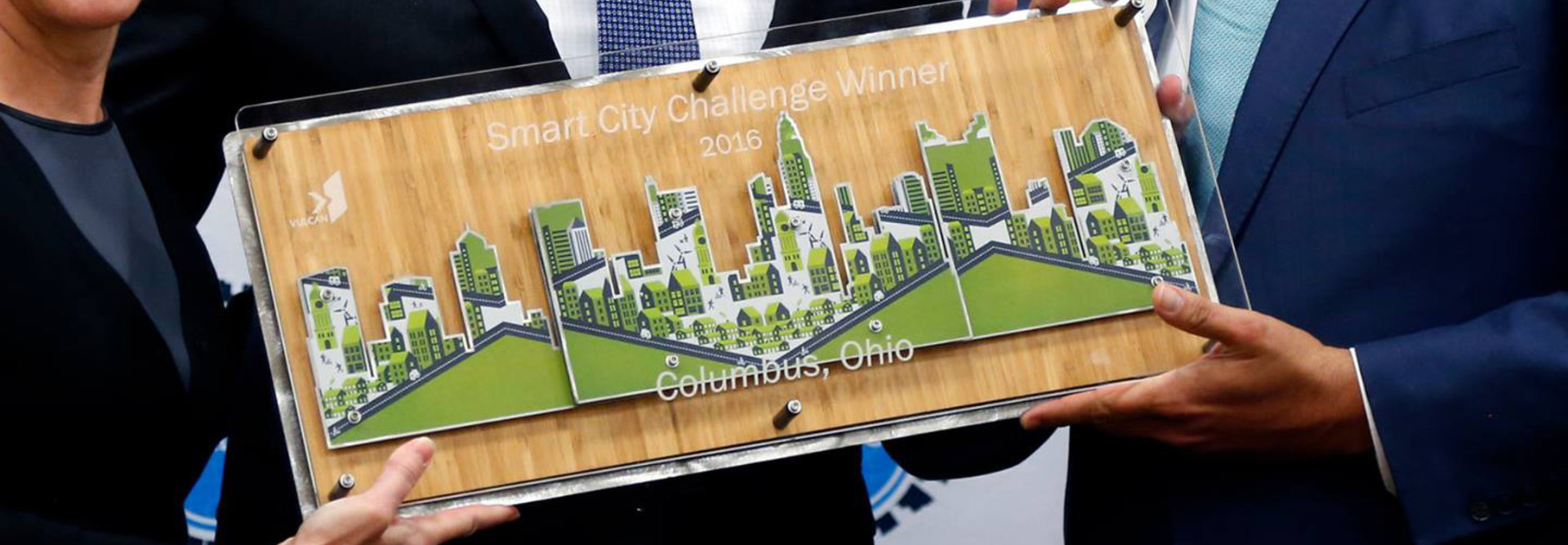Smart City Champion Columbus Aspires to Redefine Tech and Transportation
Would it surprise you if in, let’s say, five years the most technologically advanced city in the United States wasn’t New York City or San Francisco, but rather Columbus, Ohio?
Thanks to its victory in June in the highly publicized Smart City Challenge, a nationwide contest put on by the Department of Transportation (DOT), the mid-sized, Midwestern city is poised to leapfrog major metropolises now that it’s armed with $40 million to bring to life its “impressive, holistic vision for how technology can help all of the city’s residents to move more easily and to access opportunity.”
As an early adopter and Smart City pioneer, Columbus is poised to play an important role in significantly shaping innovation at the city level.
“This is an endeavor that’s going to be very important to the region and to the city,” says Jeffrey Ortega, assistant director for the city. “The other thing is that the desire of the mayor, and many others, is that this is the kind of experience that the rest of the world can learn from, and to that extent, there is a desire and a pledge to be very transparent about the activities here.”
Now that the Smart City Challenge is over, the true race to build and implement their plan is on. So far, the city has been busy finalizing its cooperative agreement with DOT, starting technical kickoffs and breaking down the Smart City Challenge application into distinct projects.
“We’re determining what the work group structure looks like, and then we want the community to weigh in on these projects and give us their best and brightest. Then they can review these and identify the risks, opportunities and gaps, and reinforce the good ideas,” says Aparna Dial, Smart Columbus program manager.
A Winning Approach to Smart City Innovation
To pull off the application and presentation for the Smart City Challenge, the city had to dedicate significant time and resources to the project. Under the leadership of Mayor Andrew J. Ginther, who took office this year, a team was assembled for what Ortega describes as “an all-hands-on-deck initiative.”
The team did significant outreach to understand the needs and pain points of Columbus citizens and residents, which resulted in a proposal that recommended distinct solutions across four city districts, says Ortega.
“The desire was to have an approach that is not just using technology for technology’s sake, but one that really identifies and tries to address community problems,” he says. “I think that’s reflected in the application.”
While the city certainly wanted to avoid implementing technology for technology’s sake, the team made sure to include the city’s IT leadership, under the direction of CIO Sam Orth, as part of the proposal.
“I think IT was a very critical resource and function in this [application]. Currently, the IT department is very engaged, from the aspect of integrating and managing — very specifically — the IT functions and resources that are going to be a key part of this endeavor,” says Ortega.
The city is about to undergo a transformation that will leverage best-in-breed technology and transportation solutions. Dial and Ortega see the Smart City evolution of Columbus as something that’s long-term and potentially game-changing for the region.
“The desire here is to be the epicenter of intelligent transportation technology solutions, much in the same way that information technology, a lot of the efforts there, are being developed in Silicon Valley,” says Ortega. “This is about people being able to use technology to enhance themselves and being able to get them to opportunities that will help them in many areas of their lives.”
But perhaps even more daring is this notion: Columbus officials believe this Smart City transformation could even redefine what transportation means for a city, which was a mindset the Smart Columbus team adopted as they completed and presented their application.
“We didn’t even think about transportation as a means of just moving people and goods through efficiently,” says Dial. “We had the perspective of moving people through the rungs of opportunity and the ladders of opportunity, and moving them up through that. I think that really resonated with US DOT.”









